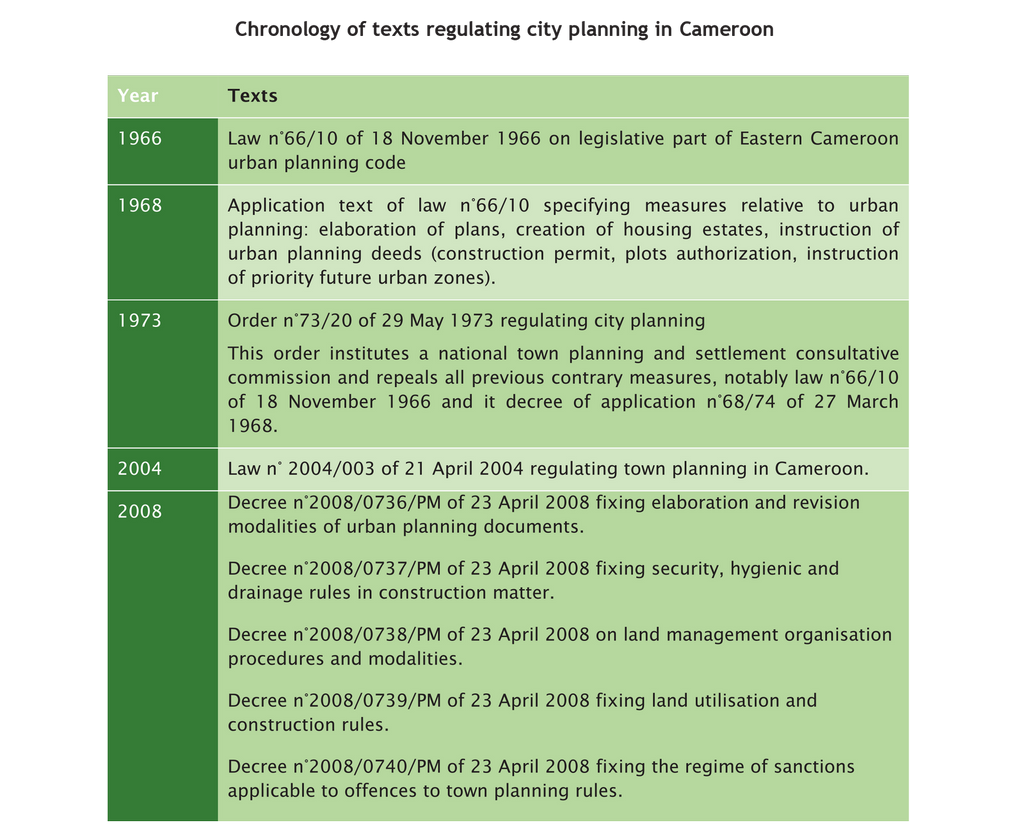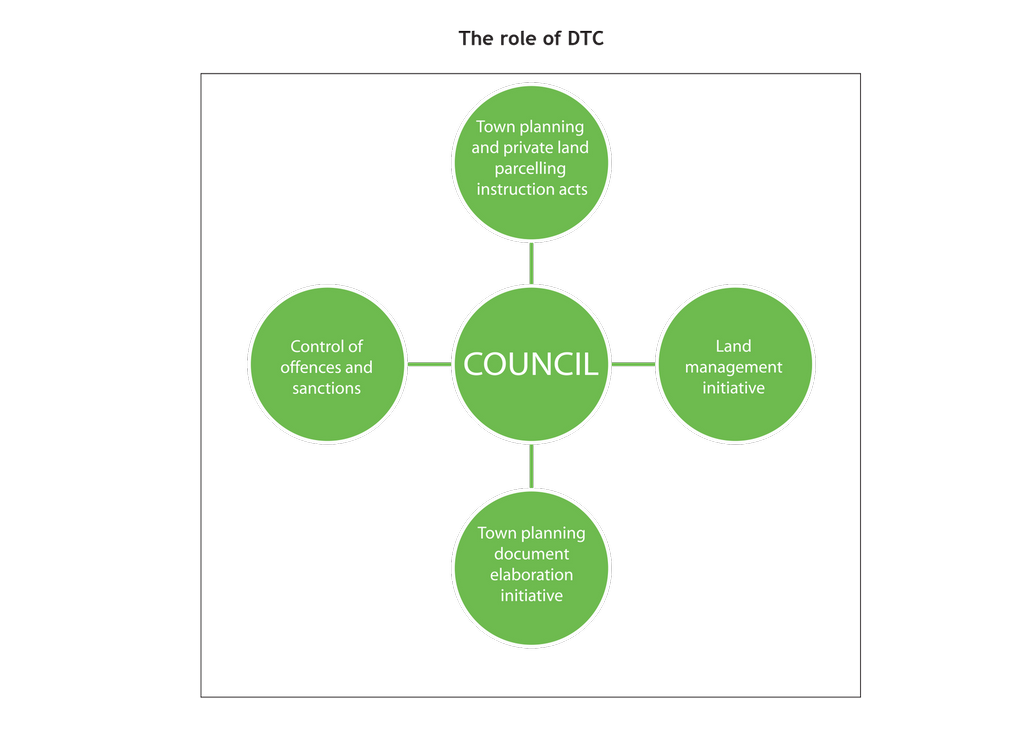Urban History
1 - Definition of city planning
Urban planning is at times a disciplinary field and a professional field covering the organisation of the town and it territories. According to article 3 of the law regulating urban planning in Cameroon, urban planning is a group of legislative, regulatory, administrative, technical, economic, social and cultural measures aimed at the harmonious and coherent development of human establishments, by favouring the rational utilisation of lands, their development and amelioration of living condition, as well as economic and social development.
City planning practices and techniques comes from the putting in place of urban policies. They check town planning and management in the quest of better usage harmony and well being. City planning can be exercised by numerous categories of professionals depending on the domain of study: urban planners, architects, managers, geographers, jurist, economists, sociologists, landscapist, engineers, environmentalists, archaeologists, or still historians intervening in a pluridisciplinary team.
It is convenient to distinguish two types of city planning:
- Operational city planning which consists in a group of equipment or construction operations, public and private initiatives realised in application of a city planning plan.
- Regulatory or planning city planning which consists of creating urban planning documents defining the rules to be respected within a territory. It is therefore all public law measures with the objective of determining land utilisation and occupation conditions. It is what permits to better organise, control private initiatives in matter of urban planning.
2 - City planning in Cameroon

3 - Decentralised Territorial Collectivities (DTC) in the heart of the process


